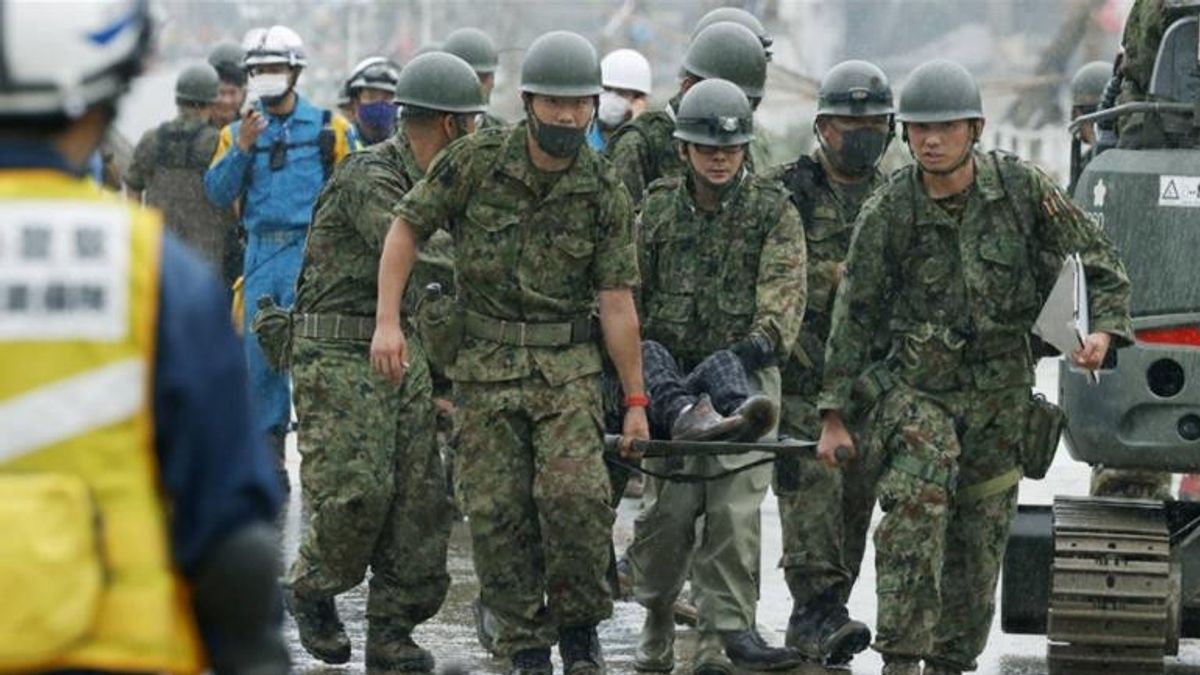JAKARTA - Floods and landslides triggered by torrential rains for days occurred in the Kyushu Region, southwestern Japan, Sunday, July 5. The disaster left 35 people dead and submerged vehicles and many houses along the Kuma River.
Due to this incident, the local authorities moved quickly to save people in the Kumamoto area. Forty thousand rescue teams consisting of defense forces, coast guards and firefighters were also involved. They also operate helicopters and boats to support rescue efforts.
Launching the Associated Press, at least 51 people were rescued, including three people suffering from hypothermia. Those who survived were immediately taken to hospital for further treatment on Sunday afternoon.
#Japan floods leave some 20 dead, more rains expected pic.twitter.com/BalCPPImTJ
- Jeyaram Anojan (@AnojanJeyaram) July 5, 2020
One of the rescue teams, Shigemitsu Sakoda who carried out rescue efforts at the nursing home service facility, said the flood had dominated the first floor when they arrived at the site. In order to enter, they had to break the window.
"So we smashed the window with a hammer to get in," he told Japanese broadcaster NHK.
Rescuers immediately climbed onto the roof to rescue those who survived. "Unfortunately, some residents couldn't get to the second floor," said Sakoda.
The flood subsidedAs the floods began to subside in parts of Kumamoto, there were recorded numerous vending machines and cars strewn across the mud-paved road. Even so, some residents seemed to be trying to return home to clean and tidy up the furniture.
Floods also cut off electricity and communication lines. As a result, it was difficult for the rescue team to search and rescue.
Even though it has died down, the rainfall is still falling in Kumamoto. Therefore, local officials warned residents to evacuate to a safe place because landslides could threaten at any time.
More than two hundred thousand residents in Kumamoto Prefecture have been urged to flee after heavy rains on Friday and Saturday. However, the evacuation was not mandatory and many of them chose to stay at home.
Most of the refusal to evacuate occurred because of their concern about the transmission of COVID-19. In fact, local officials have guaranteed the shelters are equipped with virus prevention protocols from Wuhan.
The English, Chinese, Japanese, Arabic, and French versions are automatically generated by the AI. So there may still be inaccuracies in translating, please always see Indonesian as our main language. (system supported by DigitalSiber.id)













